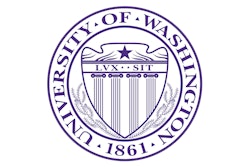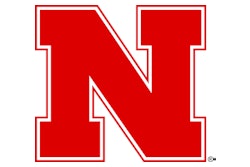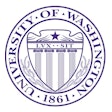Copyright 2017 Knoxville News-Sentinel Co.
All Rights Reserved
Knoxville News-Sentinel (Tennessee)
BIRMINGHAM, Ala. — Greg Sankey considers June recruiting visits and hard caps on scholarships "unhealthy" for college football.
The SEC commissioner provided his thoughts on the sweeping recruiting package the NCAA's Division I council recently approved when he spoke Monday at the Associated Press Sports Editor's Southeast Region meeting on the campus of UAB.
If the package is approved by the Board of Governors on Wednesday, recruits would be allowed to make official visits April through June. Right now, recruits can take official visits only beginning in September of their senior year. This would allow them to begin their junior year.
Although Sankey is not against earlier official visits, he believes the time period allowed should provide an accurate representation of student life.
"Our football student leadership council in February they met. They said, 'Why would you bring people to campus when it's not the regular academic term. Why would you have visits in June?' " Sankey said. "These visits should be anchored during a regular academic year. We proposed an amendment to make it in April because everyone is essentially in class in April."
As part of the legislation, the number of recruits a program can sign each year would be capped at 25. Sankey believes more flexibility is needed.
"A hard count on signing day, I don't think accomplishes what it's intended to accomplish," Sankey said. "I think what it's going to do is remove some opportunities that should exist. If somebody signs and is ineligible for some reason, the school is prohibited from replacing that scholarship with someone new."
Most college coaches were happy with the addition of a 10th assistant coach to the staff. Sankey was curious about the means of the inclusion.
"I have yet to understand why with all the discussion about personnel, in a recruiting package a 10th assistant coach was added," he said. "I think it was viewed as a bit of a sweetener, if you will. But the personnel, the staffing situation is an important one."
Sankey said the issue of staff sizes remains an important topic the SEC plans to continue having conversations about.
He credited former Tennessee football coach Derek Dooley for being the first one to bring up football's large coach-to-athlete ratio compared to other sports in a coaches meeting years ago.
"Our leadership is hopeful there will be some meaningful discussion of overall personnel in football, but not to some lowest common denominator," Sankey said. "It's not just about numbers. It's perhaps about duties. We still want entry opportunities for people."
In regards to eliminating two-a-day practices, Sankey viewed the ban as the right step based on the medical feedback the conferences have received from the NCAA.
"As we learn more about the game, we want to be attentive to adopting things that support the health and safety (of) the participants," Sankey said.
Among the other issues Sankey addressed:
North Carolina's NCAA case
Sankey said he would not comment on his involvement in the University of North Carolina's ongoing academic case.
Last week, the Associated Press reported Sankey denied a request seeking his removal as head of the NCAA infractions panel handling the case because of conflict of interest.
In his role on the panel, Sankey said he fully recuses himself for anything involving SEC institutions. He said he was not involved when Tennessee appeared before the council twice or when Florida and Georgia appeared.
Sankey said he is "not at all" involved in granting immunity to student-athletes.
SEC officiating penalties
Sankey was asked if football officials should be more publicly accountable for any mistakes they make during games.
"We are prepared to acknowledge improper allocations of rules should they occur, but I don't think there is anything to gain from suspension," he said.
Although Sankey receives many questions about officiating from the public or media, he won't respond to every inquiry.
"The reality is the vast, vast majority of the time, they get it right in a very challenging situation," he said.
Television money
The television deals with ESPN and CBS have infused the conference with a windfall of money. Schools have used the money to increase coaching salaries and build new facilities.
But Sankey pointed out some of the income goes to support the student-athlete. He referenced a question-and-answer session he attended at Arkansas last year.
"A young woman raised her hand and said just how helpful it is to be able to charter back from soccer games during the conference portion of the regular season and get back on campus and back in class," Sankey said. "The administrators said that is part of what the SEC Network has brought."
Odds and ends
Sankey remains encouraged by the progress made in men's basketball scheduling. The SEC sent five teams to the NCAA tournament this year, and three reached the Elite Eight. Sankey said the SEC plans to keep working to make sure programs find the right balance between playing challenging schedules that will merit postseason attention and allowing teams to be successful and grow.
Sankey did not want to comment on the idea of a "super conference" eventually forming. He said he is happy with having 14 schools in the SEC. "It's not an agenda item at any meeting," Sankey said. "We've committed now to a new governance structure that's the big tent model of Division I. ... It is working. It can continue to work."
Sankey said the SEC is having conversations about the potential of serving alcohol at football games. He anticipates more discussion at the SEC spring meeting in Destin, Fla. "That doesn't predict any outcomes, so be careful as you type. But we will see what the future holds," he said.
Read More of Today's AB Headlines
Subscribe to Our Daily E-Newsletter
Terms and Conditions Privacy Policy































